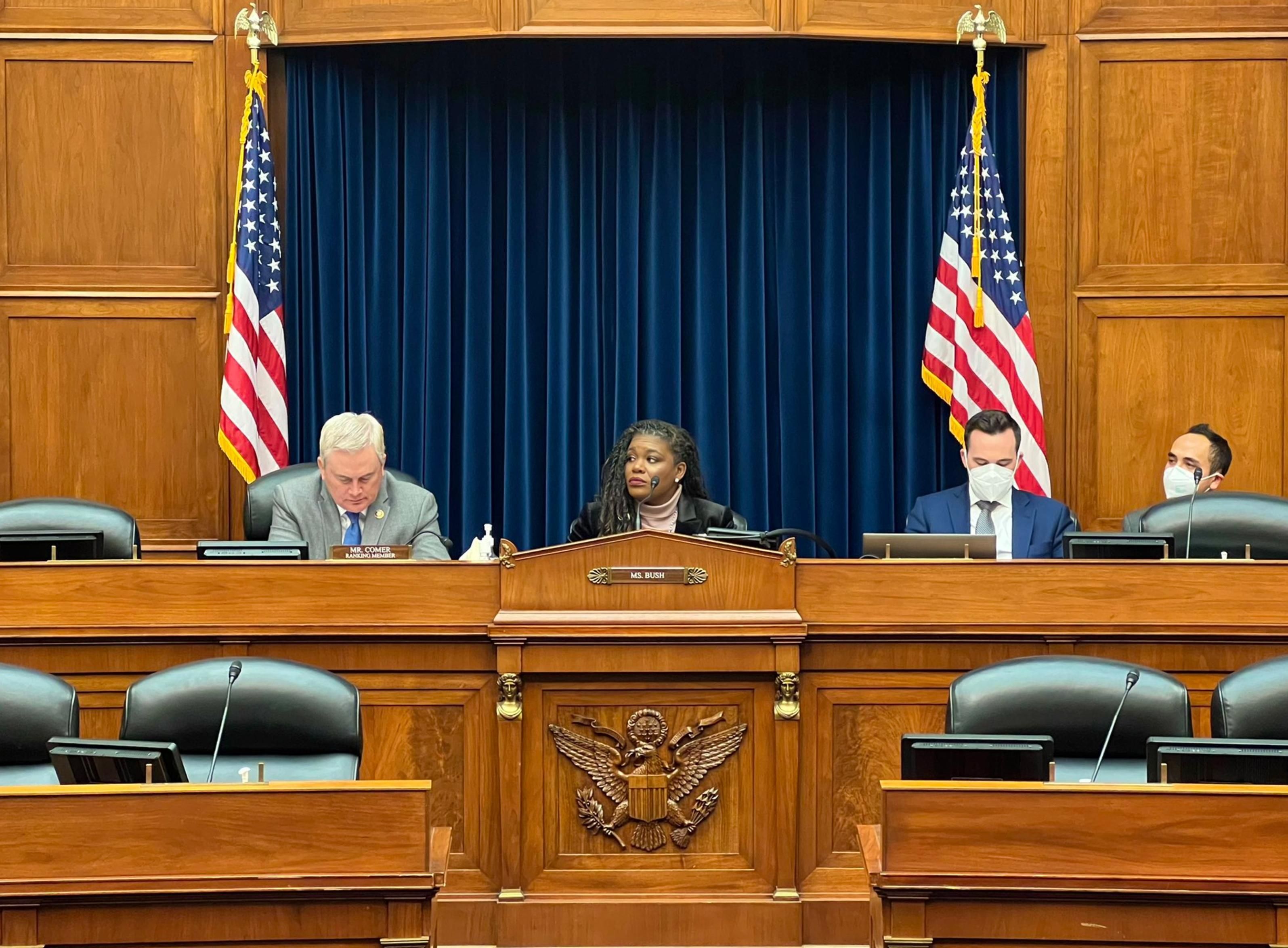Three years after the end of World War II, diplomat George Kennan outlined the challenges the country faced this way:
“We have about 50% of the world’s wealth, but only 6.3% of its population. In this situation, we cannot fail to be the object of envy and resentment. Our real task in the coming period is to devise a pattern of relationships which will permit us to maintain this position of disparity without positive detriment to our national security.”
That, in a nutshell, was the postwar version of U.S. exceptionalism and Washington was then planning to manage the world in such a way as to maintain that remarkably grotesque disparity. The only obstacle Kennan saw was poor people demanding a share of the wealth.
Today, as humanity confronts a looming climate catastrophe, what’s needed is a new political-economic project. Its aim would be to replace such exceptionalism and the hoarding of the earth’s resources with what’s been called “a good life for all within planetary boundaries.”
Back in 1948, few if any here were thinking about the environmental effects of the over-consumption of available resources. Yet even then, however unknown, this country’s growing wealth had a dark underside: the slow-brewing crisis of climate change. Wealth all too literally meant the intensified extraction of resources and the production of goods. As it happened, fossil fuels (and the greenhouse gases that went with their burning) were essential to every step in the process.
Today, the situation has shifted — at least a bit. With approximately 4% of the world’s population, the United States still holds about 30% of its wealth, while its commitment to over-consumption and maintaining global dominance remains remarkably unshaken. To grasp that, all you have to do is consider the Biden White House’s recent Indo-Pacific Strategy policy brief, which begins in this telling way: “The United States is an Indo-Pacific power.” Indeed.
In 2022, the relationship between wealth, emissions, and climate catastrophe has become ever clearer. In the crucial years between 1990 and 2015, the global economy expanded from $47 trillion to $108 trillion. During that same period, global annual greenhouse-gas emissions grew by more than 60%. Mind you, 1990 was the year in which atmospheric levels of carbon dioxide (CO2) first surpassed what many scientists believed was the level of safety — 350 parts per million, or ppm. Yet in the 32 years since then, more CO2 and other greenhouse gases have been emitted into the atmosphere than in all of history prior to that date, as atmospheric CO2 careened past 400 ppm in 2016 with 420 ppm now fast approaching.
Inequality and emissions
Growing global wealth is closely associated with growing emissions. But the wealth and responsibility for those emissions are not shared equally among the planet’s population. On an individual level, the wealthiest people on Earth consume — and emit — far more than their poorer counterparts. The richest 10% of the world’s population, or about 630 million people, were responsible for more than half of the increase in greenhouse-gas emissions over the last quarter-century. On a national level, rich countries are, of course, home to far more people with high levels of consumption, which means that the larger and wealthier the country, the greater its emissions.
In terms of per capita income, the United States ranks 13th in the world. But the countries above it on the list are mostly tiny, including some of the Persian Gulf states, Ireland, Luxembourg, Singapore, and Switzerland. So, despite their high per-capita emissions, their overall contribution isn’t that big. As the third largest country on this planet, our soaring per-capita emissions have, on the other hand, had a devastating effect.
With a population of around 330 million, the United States today has less than a quarter of either China’s population of more than 1.4 billion or India’s, which is just under that figure. Four other countries — Brazil, Indonesia, Nigeria, and Pakistan — fall into the population range of 200 to 300 million, but their per-capita gross domestic products (GDPs) and their per-capita emissions are far below ours. In fact, the total U.S. GDP of more than $19 trillion far exceeds that of any other country, followed by China at $12 trillion and Japan at $5 trillion.
In sum, the United States is exceptional when it comes to both its size and wealth. I’m sure you won’t be surprised to learn then that, until 2006, it was also by far the world’s top CO2 emitter. After that, it was surpassed by a fast-developing China (though that country’s per capita emissions remain less than half of ours) and no other country’s greenhouse gas emissions come close to either of those two.
To fully understand different countries’ responsibility, it’s necessary to go past yearly numbers and look at how much they’ve emitted over time, since the greenhouse gases we put in the atmosphere don’t disappear at the end of the year. Here again, one country stands out above all the others: the United States, whose cumulative emissions reached 416 billion tons by the end of 2020. China’s, which didn’t start rising rapidly until the 1980s, reached 235 billion tons in that year, while India trailed at 54 billion.
Having first hit 20 billion tons in 1910, U.S. cumulative emissions have only shot up ever since, while China’s didn’t hit that 20 billion mark until 1979. So the U.S. got a big head start and, cumulatively speaking, is still way ahead when it comes to taking down this planet.
The U.S. Climate Action Network (USCAN) argues that excessive emitters like the United States have already used up far more than their “fair share” of this planet’s carbon budget and so, in fact, owe a huge carbon debt to the rest of the world to make up for their outsized contribution to the problem of climate change over the past two centuries. Unfortunately, the 2015 Paris Agreement’s voluntary, non-enforceable, and nationally determined limits on emissions functionally let rich countries continue on their damaging ways.
In fact, nations should be held responsible for repaying their carbon debt. The world’s poorest people, who have contributed practically nothing to the problem, deserve access to a portion of the remaining budget and to the sort of aid that would enable them to develop alternative forms of energy to meet their basic needs.
Under the fair-share proposal, it’s not enough for the United States just to stop adding emissions. This country needs to repay the climate debt it’s already incurred. USCAN calculates that to pay back its fair share the United States must cut its emissions by 70% by 2030, while contributing the cash equivalent of another 125% of its current emissions every year through technical and financial support to energy-poor nations.
Bernie Sanders’s Green New Deal proposal adopted the concept of the “fair share.” True leadership in the global climate fight, Sanders has argued, means recognizing that “the United States has for over a century spewed carbon pollution emissions into the atmosphere in order to gain economic standing in the world. Therefore, we have an outsized obligation to help less industrialized nations meet their targets while improving quality of life.”
On this subject, however, his voice and others like it sadly remain far outside the all-too-right-wing mainstream. (And if you doubt that, just check Joe Manchin’s recent voting record.)
Are we making progress thanks to new technologies?
In 2018, the UN’s Intergovernmental Panel on Climate Change (IPCC) issued a special report on our chances of limiting global warming to 1.5 degrees centigrade — the goal that the countries involved in the Paris Agreement, including the United States, accepted as their baseline for action. It concluded that, to have a 50% chance of staying below that temperature increase, our future collective emissions couldn’t exceed 480 gigatons (or 480 billion tons). That, in other words, was humanity’s remaining carbon budget.
Unfortunately, as of 2018, global emissions were exceeding 40 gigatons a year, which meant that even if they were flattened almost immediately (not exactly a likelihood), we would use up that budget in a mere dozen years or so. Worse yet, despite a COVID-induced decline in 2020, global emissions actually rebounded sharply in 2021.
Most scenarios for emission reductions, including those proposed by the IPCC, rely optimistically on new technologies to enable us to get there without making substantive changes in the global economy or in the excessive consumption of the world’s richest people and countries. Such technological advances, it’s hoped, would allow us to produce as much, or possibly more energy from renewable sources and even possibly begin removing CO2 from the atmosphere.
Unfortunately, there’s little evidence to support the likelihood of such progress, especially in the time we have left. No matter how much new technology we develop, there seems to be no completely “clean” form of energy. All of them — nuclear, wind, solar, hydro power, geothermal, biomass, and perhaps others still to be developed — rely on massive industrial operations to extract finite resources from the earth; factories to process them; facilities to create, store, and transmit energy; and, in the end, some form of waste (think batteries, solar panels, old electric cars, and so on). Every form of energy will have multiple dangerous environmental impacts. Meanwhile, as the use of alternative forms of energy production increases worldwide, it hasn’t yet reduced fossil-fuel use. Instead, it’s just added to our growing energy consumption.
It’s true that the world’s wealthiest countries have achieved some gains in decoupling economic growth from rising emissions. But much of this relatively minor decoupling is attributable to a shift from the use of coal to natural gas, along with the outsourcing of particularly dirty industries. Decoupling has, as yet, made no dent in global greenhouse gas emissions and seems unlikely to accelerate or even continue at a meaningful enough pace after these first and easiest steps have been taken. So almost all climate modeling, like that of the IPCC, suggests that new technologies to remove CO2 from the atmosphere will also be needed to counter rising emissions.
But negative emissions technologies are largely aspirational at this point. Instead of counting on what still to a significant extent remain technological fantasies, while the wealthy continue their profligacy, it’s time to shift our thinking more radically and focus, as I do in my new book Is Science Enough? Forty Critical Questions About Climate Justice, on how to reduce extraction, production, and consumption in far more socially just ways, so that we can indeed begin to live within our planet’s means. Call it “post-growth” or “de-growth” thinking.
Make no mistake: we can’t live without energy and we desperately do need to turn to alternatives to fossil fuels. But alternative energies are only going to be truly viable if we can also greatly reduce our energy needs, which means re-configuring the global economy. If energy is a scarce and precious resource, then ways must be found to prioritize its use to meet the urgent needs of the world’s poor, rather than endlessly expanding the luxuries of the wealthiest among us. And that’s precisely what de-growth thinking is all about: scaling back the mindless pursuit of production, consumption, and profit in favor of “human well-being and ecological stability.”
Abandoning exceptionalism
In April 2021, President Biden made a dramatic announcement, setting a new goal for U.S. greenhouse-gas emissions — to reduce them 50% from 2005 levels by 2030 and reach net-zero by 2050. Sounds pretty good, right?
But given that this country’s CO2 emissions had hit a high of 6.13 billion tons in 2005, that means by 2030 we’d still be emitting three billion tons of CO2 a year. Even if we could reach net-zero by 2050, our country alone would, by then, have used up one quarter of the entire remaining carbon budget for the planet. And right now, given the state of the American political system, there’s neither a genuine plan nor an obvious way to reach Biden’s goal. If we stay on our current path — and don’t count on that if the Republicans take Congress in 2022 and the White House again in 2024 — we would barely achieve a 30% reduction by 2030.
At this point, there’s no guarantee we’ll stay on that path, no matter the political party in power. After all, consider just this:
- In 2010, about half of the new vehicles sold in the United States were cars and half were SUVs or trucks. By 2021, close to 80% were SUVs or trucks.
- In 2020, more than 900,000 new houses were built in this country, their median size, 2,261 square feet. Most of them had four or more bedrooms and 870,000 had central air conditioning.
- President Biden’s infrastructure bill, signed in November 2021, included $763 billion for new highways.
And let’s not even talk about the military-industrial-congressional complex and war. After all, the Department of Defense is the single largest institutional consumer of fossil fuels and emitter of CO2 in the world. Between its worldwide bases, promotion of the arms industry, and ongoing global wars, our military alone produces annual emissions greater than those of wealthy countries like Sweden and Denmark.
Meanwhile, in the run-up to the climate-change meeting in Glasgow, Scotland, in the fall of 2021, Special Presidential Envoy for Climate John Kerry insisted repeatedly that the United States must work to bring China on board. Joe Biden too kept his attention focused on China. And indeed, given its greenhouse gas emissions and still-expanding use of coal, China does have a big role to play. But to the rest of the world, such an insistence on diverting attention from our own role in the climate crisis rings hollow indeed.
A 2021 study shows that almost all of the world’s remaining coal, not to speak of most of its gas and oil reserves, will need to stay in the ground if global warming is to be kept below 1.5 degrees centigrade. Back in 2018, another study found that even to meet a 2-degree centigrade goal, which it’s now all too clear would be catastrophic in climate-change terms, humanity would have to halt all new fossil-fuel-based infrastructure and immediately start decommissioning fossil-fuel-burning plants. Instead, such new facilities continue to be built in a relentless fashion globally. Unless the United States, which bears by far the greatest responsibility for our climate emergency, is ready to radically change course, how can it demand that others do so?
But to change course would mean to abandon exceptionalism.
Degrowth scholars argue that, rather than risking all of our futures on as-yet-unproven technologies in order to cling to economic growth, we should seek social and political solutions that would involve redistributing the planet’s wealth, its scarce resources, and its carbon budget in ways that prioritize basic needs and social wellbeing globally.
That, however, would require the United States to acknowledge the dark side of its exceptionalism and agree to relinquish it, something that, in March 2022, still seems highly unlikely.
Copyright 2022 Aviva Chomsky










